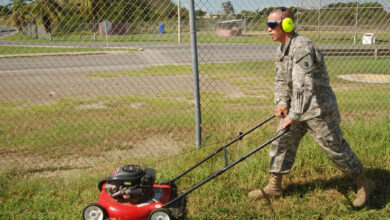Introduction of Lifeguard training
Lifeguard training remains a crucial aspect of water safety, despite advancements in technology and changes in recreational patterns. While some may question its relevance in today’s world, the importance of having well-trained lifeguards cannot be overstated.
The Importance of Lifeguard Training
Lifeguard training plays a pivotal role in ensuring safety at various water bodies, including pools, beaches, and lakes. The presence of trained professionals significantly reduces the risk of accidents and drowning incidents. Lifeguards are trained to recognize potential hazards, enforce safety rules, and respond promptly to emergencies.
One of the primary objectives of lifeguard training near me is to prevent drowning incidents. Drowning remains a leading cause of accidental death worldwide, and adequate training equips lifeguards with the skills needed to intervene effectively and save lives. Their vigilance and quick response can make all the difference in critical situations.
Swimming Proficiency
Lifeguard training begins with assessing and improving swimming proficiency. Candidates must demonstrate strong swimming skills, including the ability to swim long distances, tread water for extended periods, and perform various strokes with efficiency. Swimming proficiency is the foundation of lifeguarding, as it enables lifeguards to navigate through water swiftly and respond effectively to emergencies.
First Aid and CPR
Lifeguards are trained in first aid techniques and cardiopulmonary resuscitation (CPR) to provide immediate medical assistance in emergencies. They learn how to assess injuries, administer basic first-aid treatments, and perform CPR on individuals experiencing cardiac arrest. Knowledge of first aid and CPR is essential for stabilizing patients and maintaining their condition until advanced medical help arrives.
Emergency Response Protocols
Lifeguard training includes instruction on emergency response protocols and procedures. Lifeguards learn how to recognize signs of distress and drowning, activate emergency response systems, and communicate effectively with other lifeguards and emergency personnel. They are trained to assess the situation quickly, make rapid decisions, and execute appropriate rescue techniques to safely remove individuals from the water.
Changing Dynamics and Challenges
Despite the ongoing relevance of lifeguard training, some new dynamics and challenges need to be addressed. Technological advancements, such as automated surveillance systems, may create a false sense of security and undermine the need for human intervention. Additionally, the increasing popularity of water recreation activities poses challenges for lifeguards in terms of crowd management and supervision.
Climate change also brings its own set of challenges, including extreme weather events and unpredictable water conditions. Lifeguards must adapt to these changing circumstances and remain vigilant to ensure the safety of beachgoers and swimmers.
Benefits of Local Lifeguard Training Programs
Local lifeguard training programs offer several benefits that contribute to their continued importance. These programs are accessible and convenient for individuals seeking certification. Moreover, they are tailored to address the specific needs and challenges of local water bodies, ensuring that lifeguards are well-prepared to handle emergencies effectively.
Participating in a local lifeguard training program also fosters community engagement and promotes a sense of responsibility toward water safety. By investing in training initiatives, communities demonstrate their commitment to protecting residents and visitors alike.
Qualities of Effective Lifeguards
Effective lifeguards possess a combination of skills and qualities that enable them to perform their duties with competence and confidence. Strong swimming skills are essential, as lifeguards must be able to navigate through water swiftly and efficiently. Additionally, they must maintain a high level of vigilance and alertness to identify potential risks and respond promptly to emergencies.
Knowledge of first aid and CPR is another critical aspect of lifeguard training. Lifeguards must be able to administer lifesaving techniques effectively and provide medical assistance until professional help arrives. Regular training and refresher courses ensure that lifeguards stay up-to-date with the latest protocols and procedures.
Finally
Lifeguard training near me remains as important as ever in ensuring the safety of individuals at water bodies. Despite technological advancements and changing dynamics, well-trained lifeguards play a vital role in preventing drowning incidents and responding to emergencies effectively. Local training programs offer accessibility, tailored instruction, and community engagement, making them indispensable in safeguarding lives.





